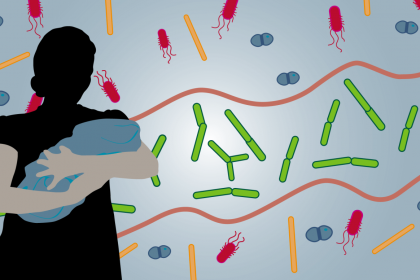
Our gut microbial communities are being killed off by antibiotics, to the extent that “the most affluent children in the world have a variety of autoimmune diseases,” says Bruce German, a professor of food science and technology at the University of California Davis. In today’s advanced age of science, medicine and technology, rates of allergies, asthma and eczema are all increasing.
“By every criteria, humans should be enjoying the best health in human history,” says German, who has spent decades studying the infant gut microbiome. But instead, “most of us are suffering from a variety of chronic and degenerative conditions that are the result of inappropriate diets.”
German – also the director for the Foods for Health Institute and the co-founder of Evolve Biosystems – shared insights on the future of personalized diets at Natural Products Expo West. He said we shouldn’t be asking should diets be personalized, but why hasn’t it been done yet?
Antiobiotics & Unintended Consequences
He points to the unintended use of antibiotics. Though antibiotics have been hugely successful in eradicating nutrient-deficient diseases – like scurvy and goiters – we’ve now become too relent on vitamins.
“From a public health perspective, the strategy that made sure everyone got enough of essential nutrients just overdosed the population. Everyone gets more than they need. It’s been our public health strategy – and it’s worked,” German says. “But the consequences of that decision is that nutrients are more important than foods.”
Though infectious diseases no longer plague the human population, antibiotics have had unintended consequences.
“Antibiotics kill pathogens, but they also kill commensal organisms,” German says. “And our entire microbial community in and outside of us are now seeing the consequences that huge success of antibiotics.”
Adding to that disruption of the human microbial community: food product branding. German says that, by the end of the 19th Century, the No. 1 cause of infectious disease was contaminated food. Food had no value as an enterprise. Branded food products became important, “then we start to get the impression that foods are either food or bad. And, of course, that’s not true. It’s your diet that’s good or bad. An individual packaged food product has very little opportunity to make a significant dent in that. But the consequences of this wonderful economic brand model is we tend to overestimate the power of individual foods.”
Science today must address the consequences of the spectacular success of antibiotics, German says.
Health Answers in Human Milk
To improve human health, the faculty at UC Davis is taking an integrative approach to agriculture. They’re trying to answer the question “What should we eat in the 21st Century?” by bringing together various tool sets across campus, like biology, physics, business, chemistry and law.
“The problem is, for the past 70 years, we have not been investing in health,” German says.
Human milk, German believes, could provide answers to restoring damaged microbiomes. German has spent the past two decades studying lactation and its role in evolution. With the help of Carlito Lebrilla, chemistry professor at UC Davis, scientists found human milk contains a large proportion of oligosaccharides. Babies, though, are unable to digest oligosaccharides. These oligosaccharides, findings showes, exist to nourish bacteria.
That bifoda bacteria fuels the baby, protects the baby from pathogens, educates the immune system and provides nutritional components.
“Mothers are literally recruiting another lifeform to babysit their baby,” German said. “It’s as important to feed the bacteria in the baby as the baby. …
“The future is going to therefore be in microorganisms, using food as a delivery system. So it’s both bacteria for health and bacteria for delight,” German said.
Some of the great food success stories are a “combination of commodities plus organisms” German says, like chocolate, coffee, bread, beer and cheese. All are fermented foods.
Personalized Diets Core of Future Health Industry
A knowledge-based health industry is what personalized diets will look like, German said. He compared it to Google Maps, the massive, public, cloud-based database accessible by databases. Personalized diets could one day look the same, providing information on current health status, comparing it to an end goal and detailing foods that help achieve the end goal. The individual algorithms will highlight preference, highlighting needed nutrients based on an individual’s favorite food.
“In essence, we don’t think you have to personalize food. You have to personalize the diet,” German says.
Probiotics “Not Particularly Effective”
Could probiotics restore human’s microbiomes? German said studies find, though probiotics are safe, they’re not effective. Probiotics don’t colonize the intestines.
“You probably ingest more bacteria from oral cavity from saliva everyday than probiotics,” German says.
